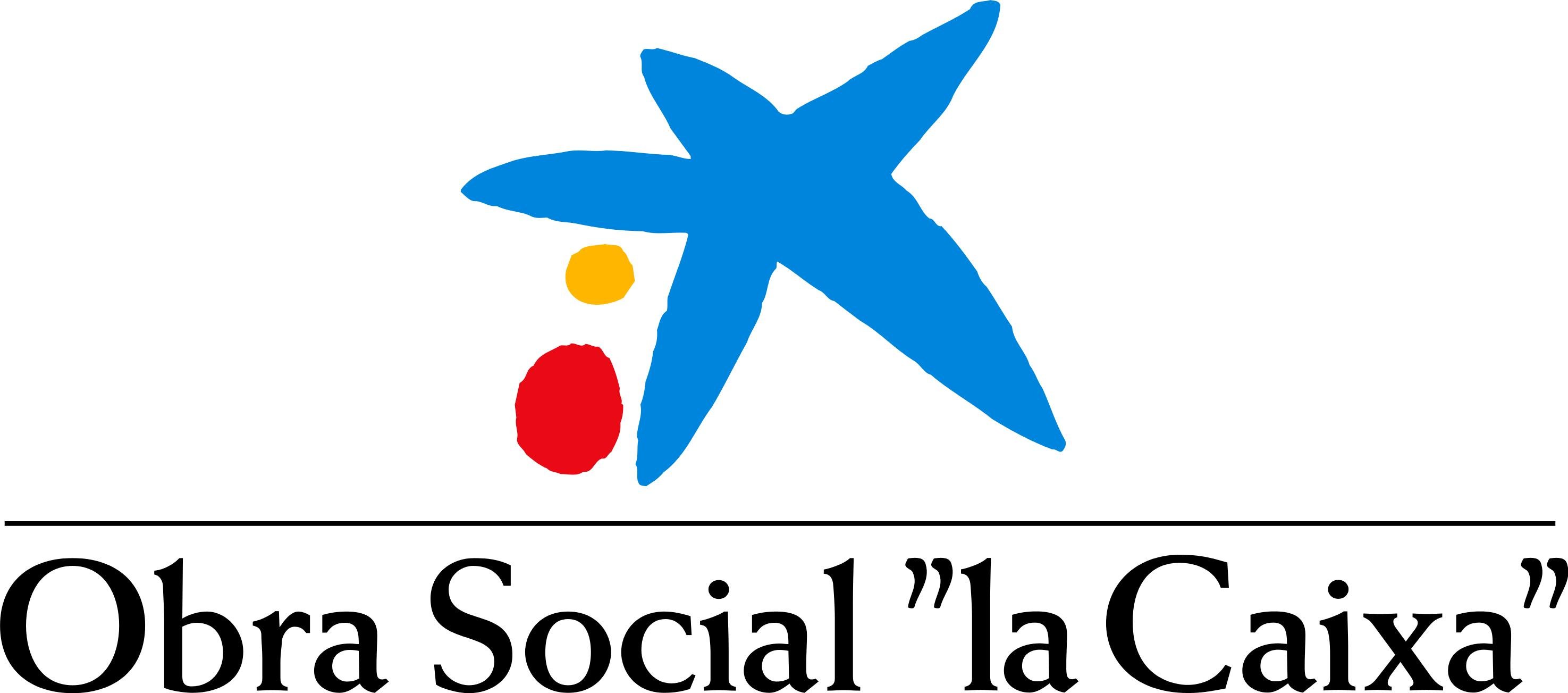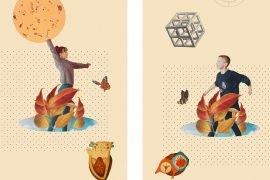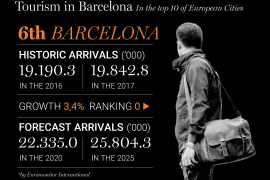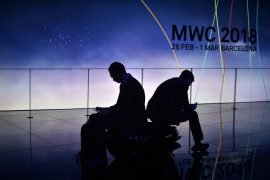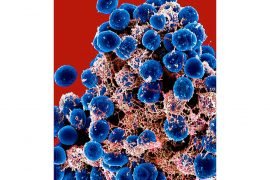It has been three years since I have “the crab” (cancer) and I always talk about it in the most natural way, even with humor. Thus, my sick colleagues can laugh a little. After all, it is something that comes from nature, and it does not deserve that we are so afraid of it. As I say in my song “Humo”, I no longer feel fear or have faith. Although I must admit that my nurses have given me back my faith in humanity.
And I say so, because in this society in which we live I no longer believed that the human being did things altruistically. But the professionals I met at the Vall d’Hebron hospital showed me that they are willing to give everything for others to feel well. I was amazed to find people who give so much without expecting anything in return. They love you even before they have met you! And then they start taking care of you. But, from the beginning, what they do is transmit a love that you do not expect. That’s why I wrote this thank you letter. They are my idols. For years had I not perceived such level of love, generosity and dedication.
“I was amazed to find people who give so much without expecting anything in return.”
In hospitals, besides managing health, they manage life and death and, therefore, fear. A very special moment, during my stay, used to be at eight in the morning, when the medical team came to visit me. For a patient, non-verbal language is much more important than words. A doctor can tell you: “Come, this is going to be cured!”, And you may be seeing in his face that something is wrong. Or the surgeon looks at the wounds of the operation and says, “This looks good!”. But you only breathe, reassured, when he gives you a pat of confidence on the shoulder. I was also very comforted by the nurses’ smiles when they came to ask me how much pain was going on. At times like this, every tiny detail can make you happy or ruin the day. In fact, I learned that one can take care of others without talking.
“In fact, I learned that one can take care of others without talking.”
In addition to technical knowledge, caregivers need great emotional intelligence, both to treat the sick and to manage internally what they live every day. That is why is essential the support and training offered to professionals and family members from initiatives such as the Program Comprehensive Care for People with Advanced Diseases by Obra Social “la Caixa”, endorsed by the World Health Organization, and whose strength is a psychosocial care team that is trained to look after patients and families in the most humane and sensitive way.
I realized how important it is to take care of the family members once I was at the Hospital de la Paz in Madrid, playing my guitar through the rooms of the oncology section -being part of a music therapy program- and I saw an 18-year-old boy who had just been diagnosed with cancer. I started to play, and the kid got a smile, but I could not encourage his parents. And oneself, as a sick person, needs people around to be well. You need their love. And, sometimes, for those outside everything is more difficult. When you live with the disease, you know at all times what you feel, how you are doing and how far you can go. But the people who take care of you do not know it and, therefore, they worry much more if one day, for example, they see you with dark circles under your eyes. That is why you have to know how to communicate when you are well. The patient can also help the caregiver.
“We have come to the world to take care of each other.”
Contrary to what people may think, the sick person has the most control over his/her life, in the sense that you give much more value to your time and live life with more intensity. We don’t have time to waste on nonsense! I, for example, have arrived from Mexico two hours ago. Next week I’ll go to Greece on a sailboat. Then I’ll play in Madrid and continue to go on tour until the end of the year. Since I was diagnosed with the disease, I have written the book 50 palos y sigo soñando, I’ve recorded an album and I’ve done a tour. I do not waste my time thinking about the future. For me, living is urgent.
Of course, what I would like is that tomorrow, Helena, my oncologist, would call me and say: “Hey, I have a pill that you are going to take and ciao to the disease. “But in the meantime, until this happens, I would tell people with chronic diseases to be patient, that life goes on and that you can live in an exciting way, even if one day you need to stay on the couch with a blanket, watching TV. And to the caregivers who have had to acquire that role, I would tell them that, although it is a very difficult situation, it is also a great way to show love to your family member, your friend or your partner. We have come to the world to take care of each other. And if we all did so, the world would be much better.
Interview: Ana Portolés
You can read more stories like this on ALMA, the social social media, a digital space devoted to the social field, which brings a new look at the present and the future of society, from an optimistic and diverse point of view, and from all the initiatives that “la Caixa” Foundation promote.

